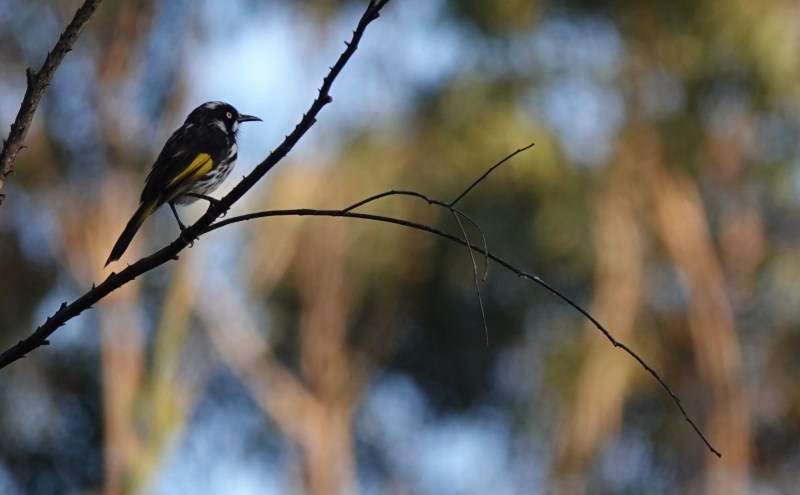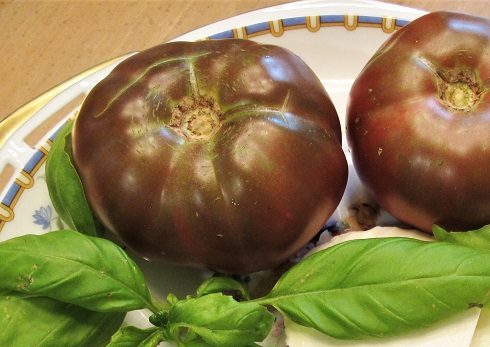
From Trash to Tweet: Building a Bird-Friendly Compost Haven
The rustle of leaves underfoot, a crispness in the morning air, and the persistent chirping of birds – these are the hallmarks of autumn settling in. But have you ever considered what happens to all those fallen leaves, kitchen scraps, and garden trimmings that accumulate this time of year? Most likely, you compost them. But what if your compost pile could be more than just a waste disposal system? What if it could become a thriving haven for our feathered friends?
In this post, you’ll learn how to transform your ordinary compost pile into a bird-friendly ecosystem, offering a valuable food source and habitat for local birds. We’ll cover everything from the best food scraps to include (and those to avoid!), to creating the ideal compost structure for birds to thrive, and offer tips on how to attract a variety of birds for a more diverse and vibrant garden ecosystem. Get ready to turn your trash into a tweeting treasure!

Why a Bird-Friendly Compost Pile?
A bird-friendly compost pile offers a multitude of benefits, extending far beyond simply reducing kitchen waste. It's about creating a symbiotic relationship between your garden, the birds, and yourself. So, why should you consider making the switch?
Ecological Benefits: Birds are natural pest controllers. They feast on slugs, snails, insects, and other garden pests that can wreak havoc on your plants. By attracting birds to your compost pile, you're essentially enlisting a free and effective pest control service. I can't tell you how many times I've watched robins diligently picking grubs out of my compost, saving my tomatoes from an early demise! Beyond pest control, birds contribute to pollination, especially hummingbirds.
Nutrient Cycle: Birds play a vital role in the nutrient cycle. As they forage through your compost, they scatter seeds, enriching the soil with their droppings (a natural fertilizer!). This continuous cycle of decomposition and dispersal contributes to a healthier, more fertile garden.
Observation and Enjoyment: There's something incredibly rewarding about observing birds in your garden. The vibrant colors, cheerful songs, and playful antics bring a sense of joy and connection to nature. Taking the time to watch them go about their day is a wonderful stress reliever. You can even try documenting the different bird species that visit your compost and record what kind of scraps attract them most!
Different Bird Preferences: Not all birds eat the same things! Insectivores like robins and wrens will be drawn to the grubs and insects that naturally occur in a healthy compost pile. Seed-eaters like finches and sparrows might enjoy sunflower seeds mixed into your compost. Fruit-loving birds, like cardinals and bluebirds, will appreciate berries and fruit scraps. Knowing your local bird population and their food preferences can help you tailor your compost for optimal bird attraction.
A bird-friendly compost pile is more than just a pile of decomposing scraps; it's a valuable contribution to your garden's ecosystem. By attracting birds, you're promoting biodiversity, improving soil health, and creating a more enjoyable gardening experience.
What to Include (and Exclude) for Birdie Buffet
Creating a bird-friendly compost pile is all about providing a safe and nutritious food source. Just like with any meal, some ingredients are better than others! Here's a breakdown of what to include and exclude:
Bird-Friendly Ingredients:
- Fruit scraps: Apple cores, banana peels, berry stems, melon rinds – these are all treats for fruit-loving birds. Chop them into smaller pieces for easier decomposition.
- Vegetable scraps: Carrot tops, lettuce leaves, potato peels, squash innards – a great source of nutrients for birds and compost microbes.
- Cooked Rice (Unseasoned): Cooked rice can be a good energy source for birds, especially during the colder months. Important: make sure it is unseasoned.
- Eggshells (Crushed): Eggshells provide calcium, which is crucial for bird egg production. Crush them thoroughly before adding to the pile. I like to bake mine briefly in the oven to sterilize them.
- Coffee Grounds: Coffee grounds are great for composting and can help attract worms (another food source for birds!). They also add valuable nitrogen.
Safe Composting Practices:
It’s important to note that some scraps, while compostable, are not ideal for birds, and others are simply not safe for composting at all!
- Avoid Meat, Dairy, and Oily Foods: These items attract unwanted pests (rodents, flies) and can create unpleasant odors. They also decompose slowly and can disrupt the composting process.
- No Cooked or Processed Foods (Generally): Many cooked or processed foods contain high levels of salt, sugar, or preservatives that are harmful to birds. Stick to raw fruits and vegetables whenever possible.
- Limit Citrus Peels: While citrus peels can be composted, they are acidic and can slow down decomposition. Use them sparingly.
- Avoid Diseased Plants: Do not compost plants that are diseased, as the disease can spread to other plants in your garden.
- No Pet Waste: Pet waste contains harmful bacteria that can contaminate your compost.
Supplement with Seeds/Grains:
To attract a wider variety of birds, consider adding birdseed directly to your compost pile. Sunflower seeds, millet, and cracked corn are all popular choices. You can even try sprouting the seeds before adding them to the compost. This will make them more digestible for birds and add even more nutrients to your compost.
Creating a Balanced Diet:
Offering a variety of food scraps provides birds with a more balanced diet, increasing their overall health and vitality. Experiment with different combinations of fruits, vegetables, and seeds to see what attracts the most birds to your compost pile. Remember, a healthy bird is a happy bird, and a happy bird makes for a healthier garden!

Building the Perfect Bird-Friendly Habitat
Creating a bird-friendly compost pile goes beyond just adding the right food scraps. It's about designing a habitat that is safe, comfortable, and attractive to birds. Here are some key considerations:
Compost Bin/Pile Structure:
- Open Pile: A simple open pile is the most basic option. Make sure it is large enough to retain heat and moisture, but not so large that it becomes difficult to turn. Open piles are usually the most accessible to birds.
- Compost Bin: A compost bin can help contain the compost and prevent it from spreading. Choose a bin with openings that allow birds to easily access the compost.
- Tumbler: A compost tumbler is a rotating bin that makes turning the compost easier. While tumblers are convenient, they may not be the best option for birds, as they limit access. Consider an open pile.
Strategic Placement:
- Near Shrubs or Trees: Place your compost pile near shrubs or trees to provide cover for birds. This will give them a safe place to perch and escape from predators.
- Sheltered Location: Choose a location that is sheltered from wind and direct sunlight. This will help maintain a consistent temperature and moisture level in the compost pile.
Water Source:
Providing a water source is crucial, especially during dry periods. A birdbath, a shallow dish of water, or even a leaky hose can provide birds with the hydration they need. Place the water source near the compost pile so birds can easily access it.
Adding Roosting Areas:
Incorporate small branches or twigs into the compost pile to give birds places to perch and rest. You can also add a few small logs or rocks to create additional roosting areas.
Protect From Predation:
If you have cats or other predators in your area, take steps to protect the birds that visit your compost pile. You can do this by placing netting around the compost pile or by creating a barrier around it. A simple chicken wire fence can do the trick.
Remember, creating a bird-friendly compost pile is about more than just the food; it's about creating a welcoming and safe environment where birds can thrive. A little bit of planning can make a big difference in attracting birds to your garden.
![birdbath near compost pile flowers in background]
Monitoring and Maintenance - Keeping it Bird-Safe
Once you've created your bird-friendly compost pile, it's important to monitor and maintain it to ensure it remains a safe and healthy environment for birds. Here are some key maintenance tips:
Regular Turning:
Turning the compost pile regularly is essential for proper decomposition. This helps aerate the compost, preventing the build-up of harmful gases. Use a pitchfork or shovel to turn the compost every week or two. Be mindful of birds that may be nesting in the compost.
Checking for Pests:
Regularly check the compost pile for signs of rodents or other unwanted pests. If you find any, take steps to eliminate them using organic pest control methods. Avoid using poison baits, as these can harm birds.
Avoiding Pesticides:
It's crucial to avoid using pesticides in your garden, as these can be harmful to birds and other beneficial insects. Opt for organic pest control methods instead.
Observing Bird Activity:
Pay attention to the birds that visit your compost pile. Notice what they are eating and how they are interacting with the compost. This will give you valuable insights into how to improve your composting practices.
Document Changes:
Keep track of what scraps you add to the compost and what birds visit. Over time, you'll be able to identify patterns and adjust your composting practices to attract even more birds.
Consistent maintenance is key to keeping your bird-friendly compost pile thriving. By following these tips, you can ensure your compost remains a valuable resource for birds and a healthy addition to your garden.
From Scraps to Sanctuary
Turning your compost pile into a bird-friendly haven is a rewarding way to reduce waste, improve your garden's ecosystem, and connect with nature. By providing birds with a safe and nutritious food source, you're helping them thrive and contributing to a healthier environment for everyone.
As the seasons change, take the opportunity to transform your composting efforts and create a welcoming space for our feathered friends. Even small changes can make a big difference. So get out there, start composting, and enjoy the beauty and benefits of a bird-friendly garden!
What birds are you hoping to attract to your garden this year? Share your own bird-friendly composting tips and experiences in the comments below!